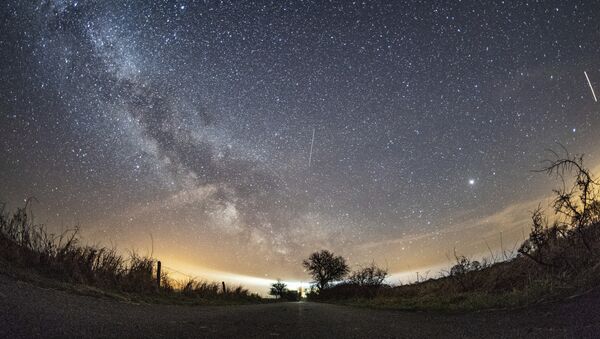New research on the weight of the Milky Way has challenged NASA’s findings on this issue. According to a study published on arxicv.org on 9 December, the mass of our galaxy is drastically lower than previously estimated. NASA working together with the European Space Agency found out that the mass of the Milky Way stands at whopping 1.5 trillion solar masses, meaning it weighs 1.5 trillion times more than the Sun. Yet according to a paper titled “a robust estimate of the Milky Way mass from rotation curve data” the weight of our galaxy is considerably modest, just 890 billion solar masses.
The study noted: “We have used rotation curve data to estimate the dark and total mass of the Milky Way and performed a careful assessment of the robustness of these estimates". Much of the weight is attributed not to stars in our galaxy, but to dark matter and supermassive black hole Sagittarius A, which weighs more than 4 million times more than the Sun. The new study also revealed the width of the Milky way, claiming it is about 250,000 light years across.
There have been numerous attempts to measure the weight of the Milky Way. Some have put it at 500 billion solar masses, while others labelled it at 3 trillion solar masses. It is hard for scientists to make exact calculations due to the Earth’s position inside the galaxy. It is easier for scientists to measure the weight of nearby bodies, like the Andromeda galaxy, because they can observe them in full.



